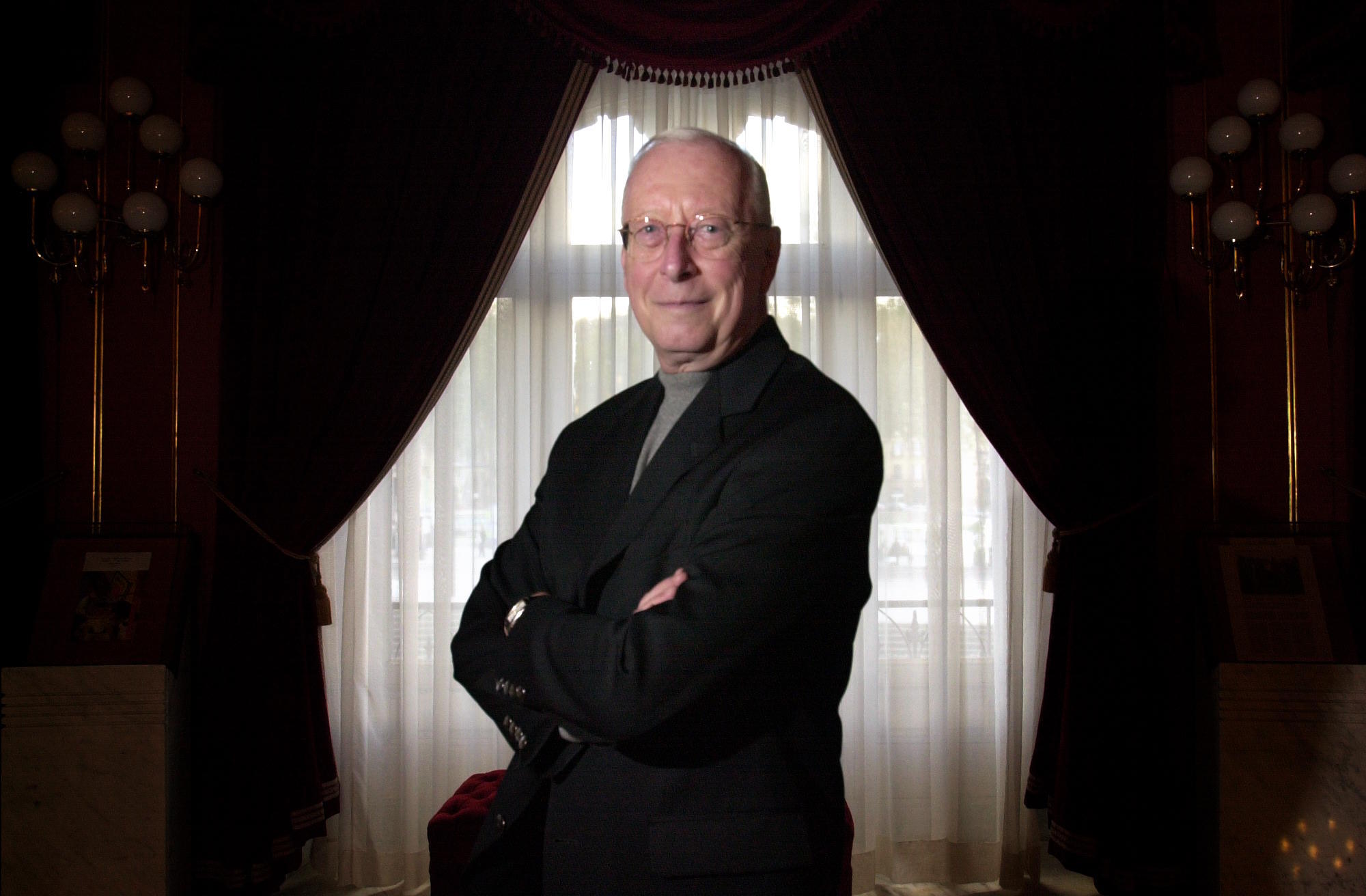William Christie (Buffalo, 1944) comes from celebrating his 80th birthday with the musicians of Les Arts Florissants (LAF) at the Philharmonie de Paris. The celebration began with a tea time session, followed by a collection of Baroque dances, and concluded with a selection of pieces such as Handel's "Ariodante" and Rameau's "Les Indes galantes," where the octogenarian maestro shone in the circular hall designed by Jean Nouvel. "It was one of those concerts that I will never forget," confesses Christie over the phone from his home in the Parisian neighborhood of Le Marais. "Wherever I looked, I found generous displays of affection from the performers and the audience. It was a reunion among old friends who still feel young."
As part of the celebrations, Warner Music has released a box set with the 61 discs that Christie and his colleagues recorded for Erato and Belgian Classics between 1994 and 2011. "I rarely listen to myself, but the occasion easily lent itself to nostalgia," he acknowledges. "Returning to the versions of 'Alcina' performed by Renée Fleming, Susan Graham, or Nathalie Dessay has been very enjoyable, as well as rediscovering some of the Mozart titles that I premiered in Aix-en-Provence." Despite the time that has passed, the unique sound of Les Arts Florissants, an ensemble specializing in early music repertoire that he founded in 1979 based on a Charpentier opera, "still remains fresh and full of energy."
Christie belongs to the generation of pioneers - like Gardiner, Jacobs, or Savall - who took up the mantle from Leonhardt and Harnoncourt to lead the "Baroque revolution" with a historically informed approach to the repertoire. Today, no one considers them crazy, and Karajan's versions of early music have happily been discontinued. "In every small city in Europe, there are groups dedicated exclusively to music from the 17th and 18th centuries, but that is no guarantee," reflects the veteran Harvard and Yale alumnus. "In reality, knowing how to play a period instrument does not necessarily mean you have something to contribute. Without intelligence, culture, knowledge, and curiosity, you won't get very far..."
Christie grew up in the countryside, on the outskirts of Buffalo, but the horror of the Vietnam War convinced her to pack her bags and move to France. Over time, she ended up acquiring land in Vendée, where every summer she organizes a festival in the gardens of her house in Thiré, which features a vegetal theater made of geometric yews and even an artificial pond. "In each edition, we invite students from Juilliard in New York to experience their first immersion in the Baroque," she admits. "We want to build a bridge with the new generations of performers and singers, many of whom are discovered in our biennial singing competition, Le Jardin des Voix."
On December 21st (two days after blowing out the candles), Christie conducted at the Théâtre de l'Opéra-Comique in Paris Les Fêtes d'Hébé in a new and somewhat controversial version by Robert Carsen: instead of nymphs and shepherds wandering through a bucolic stage, the characters of Rameau's opera-ballet moved through offices, nightclubs, and television sets. "Carsen did a great job with a very difficult libretto to adapt, which already received criticism after its premiere in 1739," she defends her colleague. "His stage concept was very brave, but above all respectful, as it allowed the singers to immerse themselves in an aesthetic universe where the focus was on music, diction, pronunciation, and Baroque rhetoric."
The Liceu in Barcelona has invited Christie to conduct the six performances of Giulio Cesare at the end of May in the acclaimed production by Calixto Bieito, which relocates the action to a desert under the empire of petrodollars. "When it comes to a Handel opera, one must proceed with great care," warns the specialist. "I have turned down some proposals from German theaters that I consider problematic. In Spain, our concertmaster, Emmanuel Resche, will lead the musicians of the Liceu Symphony Orchestra on a journey to the essence of the Baroque, featuring an extraordinary lineup of voices," she says, referring to the countertenor Xabier Sabata and the soprano Julie Fuchs.
Although almost all operas contain a political message, with more or less explicit references to the present, Christie resists the "pamphletization" of librettos. "The populist agitation of recent years has turned the world into a tremendously hostile place, and certainly musicians cannot turn a blind eye to injustices," she reflects. "I have never kept quiet and am very critical of the situation in the United States. However, when we put a score at the service of an ideology, we run the risk of overshadowing the beauty of emotions, which is ultimately where the true potential of music lies."
